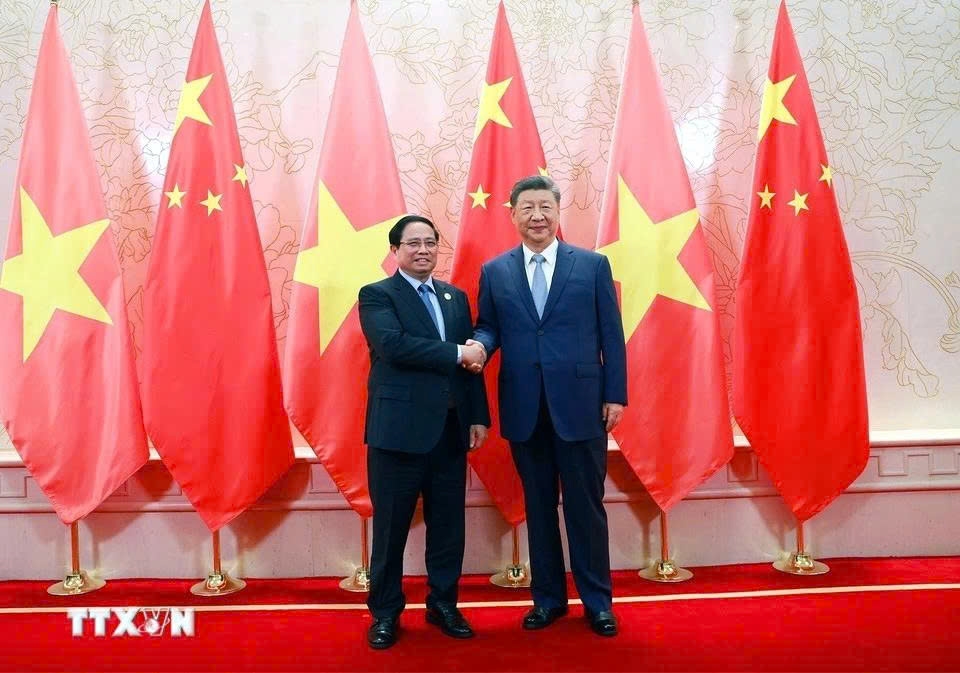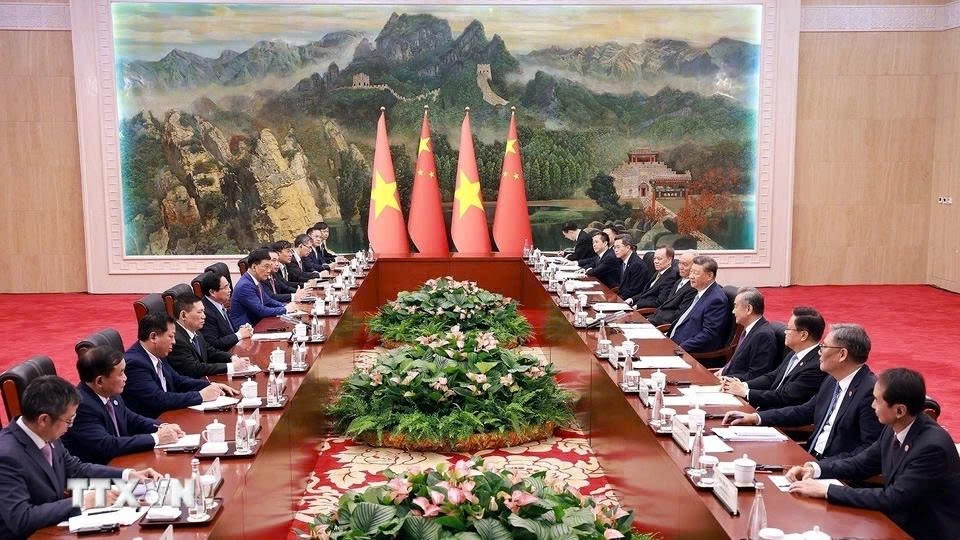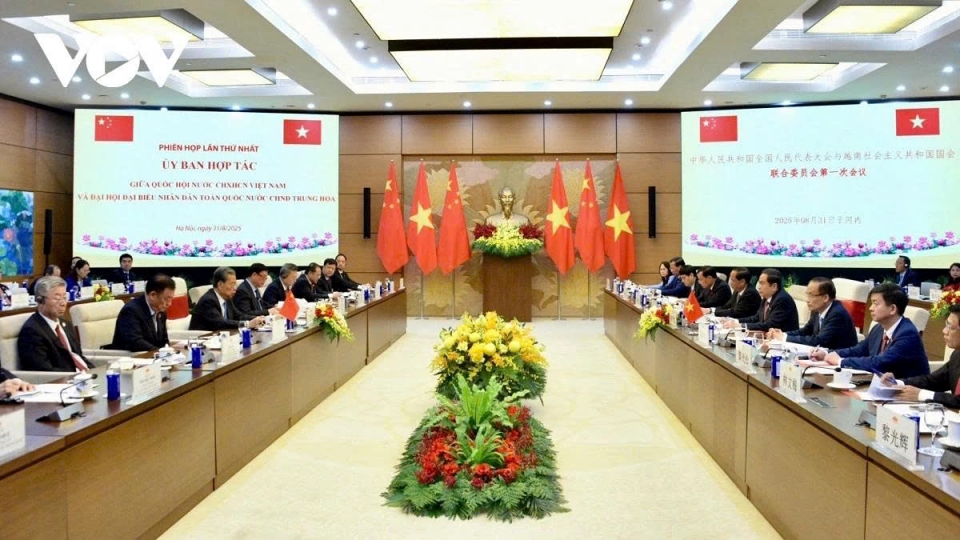PM Pham Minh Chinh meets Chinese President Xi Jinping in Tianjin
VOV.VN - Vietnamese Prime Minister Pham Minh Chinh met with Chinese Party General Secretary and President Xi Jinping in Tianjin, China, on August 31, on the sidelines of the Shanghai Cooperation Organisation (SCO) Summit.

During the meeting, PM Chinh conveyed warm regards and best wishes from General Secretary To Lam, President Luong Cuong, and other Vietnamese leaders to General Secretary Xi and other Chinese leaders. He also thanked China for sending a high-level delegation and military representatives to attend Vietnam’s 50th anniversary of the liberation of the South on April 30, 2025 and 80th National Day celebrations on September 2, 2025.
PM Chinh congratulated China on its continued achievements under the leadership of the Communist Party of China with Xi Jinping as its core, praising its role as a key driver of global economic growth and contributor to solutions for major international challenges. He welcomed the theme of this year’s SCO Summit, “SCO Year of Sustainable Development,” and affirmed Vietnam’s readiness to coordinate with China and other member states to uphold multilateralism, promote sustainable development, and address pressing regional and global issues.
In response, General Secretary Xi welcomed PM Chinh’s delegation to the SCO Summit, highlighting Vietnam’s commitment to strengthening bilateral relations and its active support for conferences hosted by China. He extended greetings to Vietnamese leaders and congratulated the Vietnamese Party, State, and people on the 80th anniversary of the August Revolution and National Day.
PM Chinh highlighted six key achievements in Vietnam-China relations over recent years, including strengthened strategic trust, deeper security and defence cooperation, closer economic and trade integration, enhanced connectivity in railway and air transport, and a more solid social foundation. He reaffirmed that Vietnam consistently regards the development of relations with China as an objective necessity, a strategic and natural choice, and a top priority in its foreign policy.

Both leaders agreed to vigorously advance the “6-higher” framework for Party-to-Party and bilateral relations, enhance strategic exchanges, promote comprehensive cooperation across all sectors, connect the two economies, especially railways, and boost collaboration in science, technology, and innovation.
PM Chinh proposed maintaining flexible, high-level exchanges between the two parties, strengthening the security-defence cooperation pillar, and accelerating specific military-commercial projects. He emphasised the need to organise the first session of the Vietnam-China Joint Railway Cooperation Committee, prioritise Vietnam in regional railway industrial development, expedite feasibility studies, and initiate negotiations on preferential loan frameworks. He also requested China’s support for training human resources in railway management and the development of Vietnam’s railway industry complex.
On trade and investment, PM Chinh urged China to increase the import of high-quality Vietnamese agricultural products, approve quarantine protocols for citrus, seafood, and meat products, grant cultivation codes for durian, and enhance cross-border smart ports and economic cooperation zones.
On energy and technology, he called for deeper cooperation in clean energy, electricity trade, science and technology, innovation, digital transformation, technology transfer, e-commerce, and artificial intelligence applications in education, healthcare, transport, and agriculture. PM Chinh also proposed Tsinghua University provide PhD scholarships in artificial intelligence (AI) and training programmes for key sectors such as AI, semiconductors, quantum technology, and low-orbit satellites. He emphasised continued people-to-people exchanges, cultural programmes, and increasing commercial flights and visa facilitation between the two countries.
Xi appreciated Chinh’s proposals and Vietnam’s contributions to bilateral ties, reaffirming China’s support for Vietnam’s successful organisation of its 14th National Party Congress and ít socialist development path.
Both sides agreed to strengthen high-level strategic exchanges, promote practical cooperation with concrete results, organise the 17th session of the Vietnam – China Steering Committee for Bilateral Cooperation, and convene the 3+3 strategic dialogue between the foreign affairs, defense, and public security ministries in 2025.
The two leaders also discussed maritime issues candidly, agreeing to adhere to high-level understandings, manage differences responsibly, and maintain a peaceful, cooperative, and development-oriented environment in the region.





